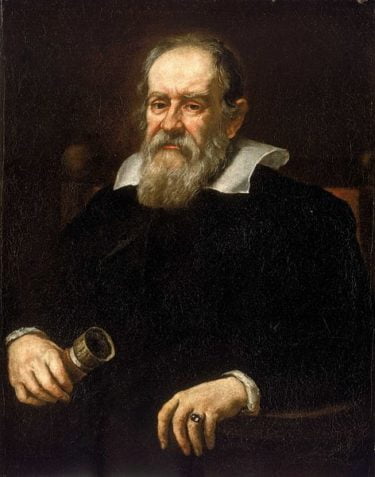In a recent article in Areo magazine, Dr Heather Heying asks, ‘What if we’re wrong?’ Wrong, that is, about Sars-COV2 probably having a zoonotic origin, about the safety of the current crop of mRNA vaccines for COVID-19, and about Ivermectin not being a better alternative.
Indeed, Dr Heying and her partner Dr Bret Weinstein argue strongly against all of these positions. In a recent episode of their podcast Heather acknowledged that Bret had estimated the likelihood of laboratory origin as greater than 95% (an increase from his original estimate in May 2020 of 90%). They claim that the COVID-19 vaccines are dangerous, comparing taking the vaccine to playing Russian Roulette with a loaded gun. They argue in the strongest possible terms in favour of Ivermectin as an entirely safe and highly effective prophylactic and cure. The authorities and experts are described as ‘playing games with people’s lives’, engaging in the ‘crime of the century’, and are accused of neglecting and suppressing these ideas. Thus, although they sometimes portray their views as merely ‘conspiracy hypotheses’, it is hard to regard these caveats as being anything other than a performative tactical disclaimer, given the vehemence and certainty that characterises their split with the scientific consensus.
These views contrast strongly with those of the scientific and medical authorities. Experts rate the likelihood of a laboratory origin as low, though impossible to rule out at present. Current data strongly suggests the vaccines are extremely safe, while Ivermectin is an unproven treatment for COVID-19 with only low quality evidence currently available as to efficacy. Even the pharmaceutical company, Merck, which owns the most popular brand of Ivermectin in the US has released a statement on its website to explain that there is “no meaningful evidence for clinical activity or clinical efficacy in patients with COVID-19 disease” and “a concerning lack of safety data in the majority of studies.”
For every Einstein, there are legions of deluded dilettantes, whose revolutionary ideas amount to nothing more than hot air
In the Areo article, Heying likens the medical and scientific orthodoxy to the medieval Catholic church, and compares their own contrarian theories to the work of Galileo Galilei and Louis Pasteur. However, she concedes that, “For every Pasteur, there must be thousands of people who have had an idea that didn’t pan out…”. It is certainly true – as any professor can attest – that for every Einstein, there are legions of deluded dilettantes, whose revolutionary ideas amount to nothing more than hot air. Nevertheless, it would be lamentable if we neglected the contemporary equivalent of germ theory or heliocentrism.
There have been some notable cases of lone researchers overturning a previous consensus through their novel thinking and research. The Nobel prize winner, Barry Marshall, for example, engaged in self-experimentation to demonstrate that a bacterium played a major role in causing many peptic ulcers, challenging previous views that ulcers were caused primarily by stress, spicy foods, and too much acid. How then, should an open-minded skeptic approach this dilemma of seeking truth while avoiding the error of falling prey to every claim made by modern would-be Galileos?
Odds are good that you, like the authors of this article, are not a specialist in virology, with a deep understanding of vaccines, viral drug treatments, and laboratory safety protocols. These are all highly technical fields, requiring many years of training and a deep familiarity with the scientific and medical literature. To attempt to generate an independent opinion from the primary evidence base is equivalent to the amateur engineers who pored over the debris of the World Trade Center towers, trying to ascertain whether they were brought down by a controlled demolition or space-borne lasers. In fact, these are trademark behaviours of conspiracy theorists, who specialise in scrutinising minutiae, exception-hunting, and uncovering purported ‘smoking guns’ that the experts are either oblivious to, or deliberately ignoring. Simultaneously, these independent investigators tend to earnestly believe that they are being critical consumers of information, and applying best practices in scientific evidence-based reasoning.
One simply cannot replace decades of research or an entire career in a specialist field with a month of googling, reading blogs, and scanning the abstracts of preprints
In situations such as these, the epistemic approach of an interested layperson is by necessity secondhand. We face similar challenges in evaluating technical claims regarding climate change, GMOs, alternative medicines, or (given the recent spate of sightings) the possibility of being currently visited by UFOs. One simply cannot replace decades of research or an entire career in a specialist field with a month of googling, reading blogs, and scanning the abstracts of preprints. Obsessing over a single sentence in a single email or article is not, in fact, pulling on the thread that unravels an entire body of literature. We rarely have access to the raw data, and even when we do, we typically do not have the skills to analyse or integrate it, even if we did. Therefore, by necessity, we rely on experts to provide their analysis, which is then synthesised and interpreted by other experts. This raises the question, when expert (and non-expert) opinions differ, what degree of credence should we assign to these sources of information?

In referencing the Galileo Gambit, Dr Heying’s article helpfully puts us on the path to addressing this challenge. The Galileo Gambit is an informal fallacy where mockery of a position, or the existence of a consensus opposing a position, is provided as reason to take a theory seriously, even in the absence of meaningful evidence for that theory. In recent years, this has taken new form, with a growing assumption among many in the commentariat that all of the ‘experts’ are overtaken by groupthink, constrained by orthodoxy, and wholly dominated by insidious incentives, if not downright malevolence.
In the case of Sars-COV2, this provides the rationale for prioritising amateur contrarian positions, and disregarding the advice of thousands of expert virologists who have devoted their lives to doing field research developing our knowledge of viruses, their origins, and their treatments. As discussed in The Quick Fix and Science Fictions, science, and especially social science, sometimes gets things spectacularly wrong. In Sars-COV2, just as with climate change and 9/11, it is possible to find genuine experts who disagree with the large majority of their colleagues. However, this is a normal situation; there will always be different views expressed in any sufficiently large field. But this does not mean that expert opinion is equally distributed across the various positions.
The lone voice in the wilderness, the unrecognised genius – these are seductive personas, and ones enthusiastically inhabited by contrarian ‘public intellectuals’. Dr Andrew Wakefield, notorious proponent of the thoroughly discredited theory that the Measles-Mumps-Rubella (MMR) vaccine causes autism, is enjoying newfound popularity, particularly in conservative circles, as a resolute anti-institutional martyr for the cause of health. Wakefield’s legacy can be found in a recent YouGov opinion poll, where nearly one third of Americans surveyed believed that vaccines cause autism. Wakefield’s misinformation, like the thousands of similar frauds, hucksters, and self-styled health gurus like him, has directly led to untold mortality and morbidity.
Despite the fallibility of individual scientists and scientific bodies, the epistemic state of our scientific institutions, especially in the physical and biological sciences, is not so dire that we must resort to heeding speculative claims by amateurs and conspiracy theorists. This is especially true when those individuals have an impressive track-record in making incredible claims. Bret Weinstein, for instance, claims that his suppressed insights regarding lab mouse telomeres are not only Nobel-worthy, but also maintains that the safety data on most pharmaceuticals in the United States are entirely invalid (see The Portal episode 19). He also claims to have alternative theories that could revolutionise modern evolutionary theory, involving so-called ‘explorer modes’ and lineage selection, both of which have had no impact on the relevant fields and have been severely criticised by the few experts who have encountered them.

This tendency towards sensationalism and grandiose claims is not restricted to lofty theoretical topics – it also manifests in the explanations offered for mundane events. For example, when encountering technical difficulties recording their podcast in Portland, Bret and Heather speculated that this could be due to ‘external interference’ and placed tinfoil hats on the cameras to reduce the interference, but subsequently revised their opinion, attributing it instead to the effects of radiation-leakage from the Fukushima nuclear plant. They claim, incorrectly, that seafood from the Pacific is now too dangerous to eat. In the same recording, they discuss the dangers of water fluoridation, a classic Bircher conspiracy theory, and describe the evidence for water fluoridation as preposterous, taking pains to point out that it is derived from industrial waste and that it is ‘insane to medicate this way’.
For some of Bret and Heather’s speculative and conspiratorial theories, the potential direct harm is small. It doesn’t matter a great deal if some in the public believe that Bret has revolutionised our understanding of evolution, or that he has been unfairly denied a Nobel prize. However, in the case of Covid, like Dr Wakefield, they could be contributing to needless illness and suffering by promoting misinformation, scaremongering about vaccines, and promoting distrust of doctors, researchers, and public health bodies. This scaremongering includes nodding along to guests attributing baby’s brains being ‘split in two’ in a bloody mess to COVID-19 vaccination, in a recent episode, ‘How to save the world, in three easy steps’ (which has subsequently been removed by YouTube for violating Community guidelines).
For technical questions, we have described the epistemic challenge of a concerned layperson as one of assessing the reliability of experts. An important skill for people to develop in the modern online world is information literacy, which includes the ability to identify reliable high-quality sources and to correctly identify which positions have broad consensus support and which are fringe views. There are always minority views and while they should not be dismissed out of hand, their claims should not be elevated in status simply because they claim the mantle of mavericks fighting against the establishment. To assess claims, we need not only to take into account the weight of expert opinion, but we also need to take into account the relevant expertise and the track-record of the individuals making contrarian claims. Drs Heying and Weinstein fail spectacularly to meet both criteria, and their warnings about COVID-19 vaccines should be weighted appropriately.
It is worth reminding ourselves that pioneers like Galileo and Pasteur come along once in a generation, but cranks and snake-oil salesmen are legion. As for Bret and Heather, and their role in promoting anti-vaccination fears, we propose they take Heather’s thesis seriously and ask themselves ‘What if you’re wrong? What if you’re not a Galileo Galilei, but an Andrew Wakefield?’.



